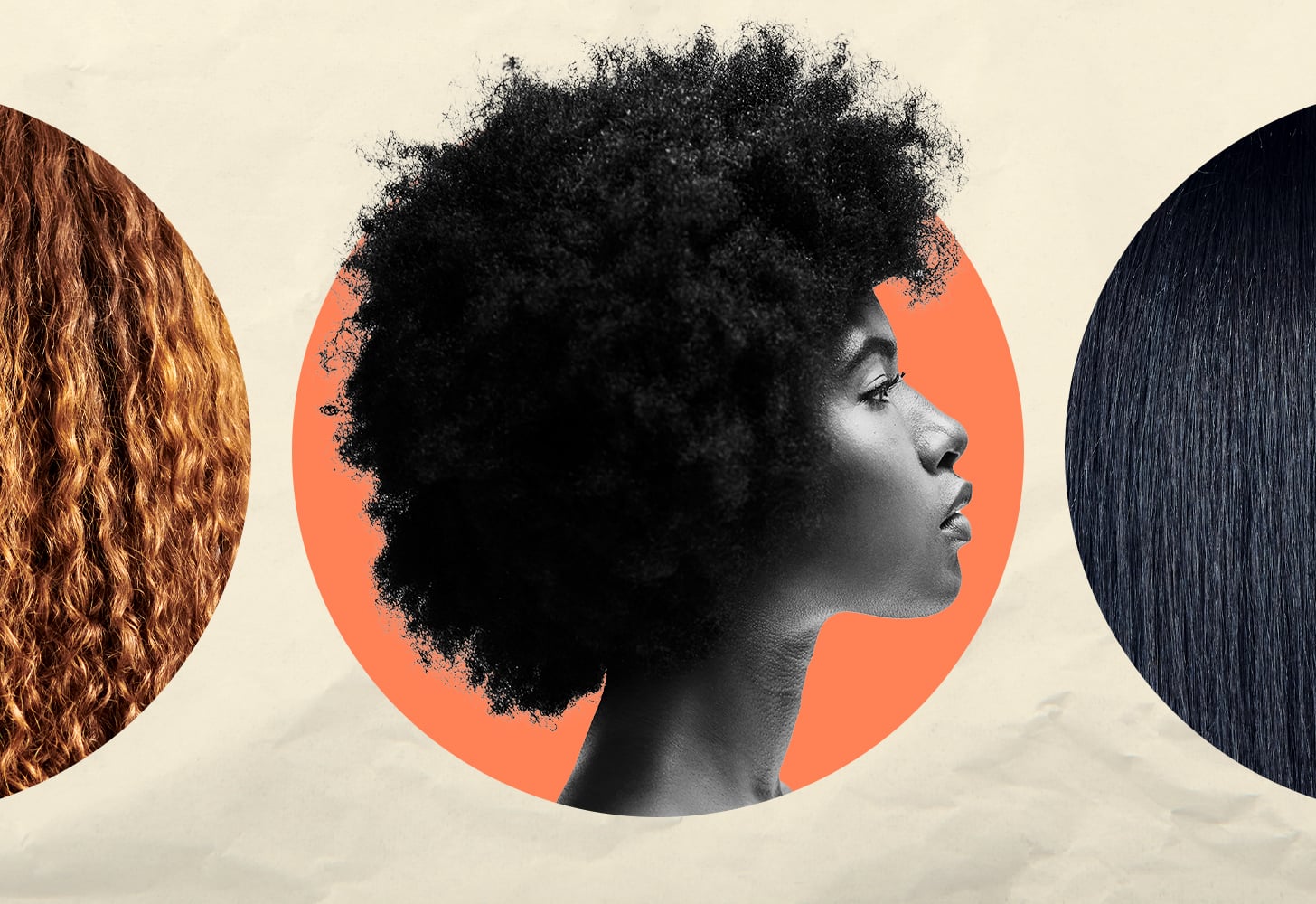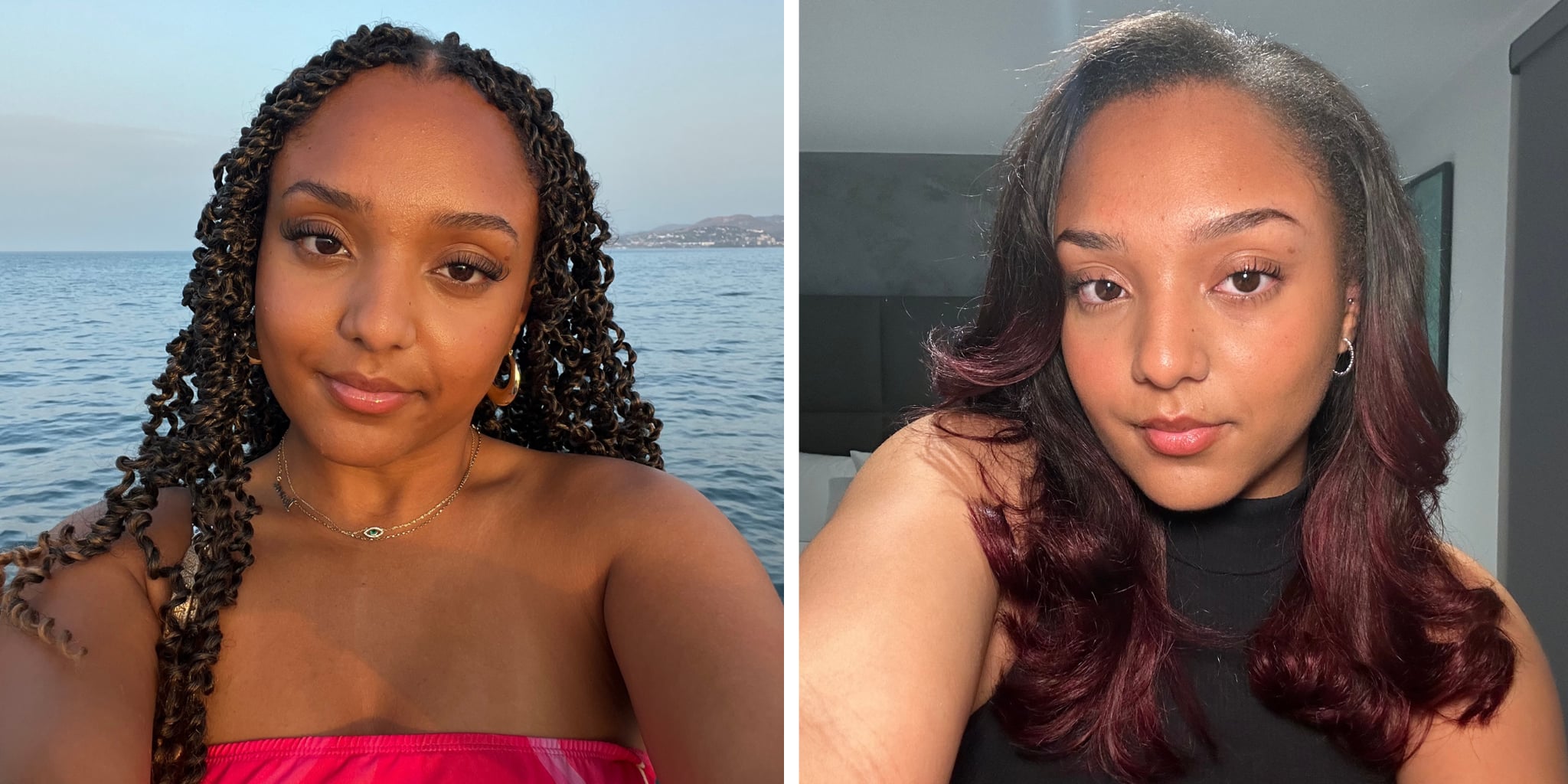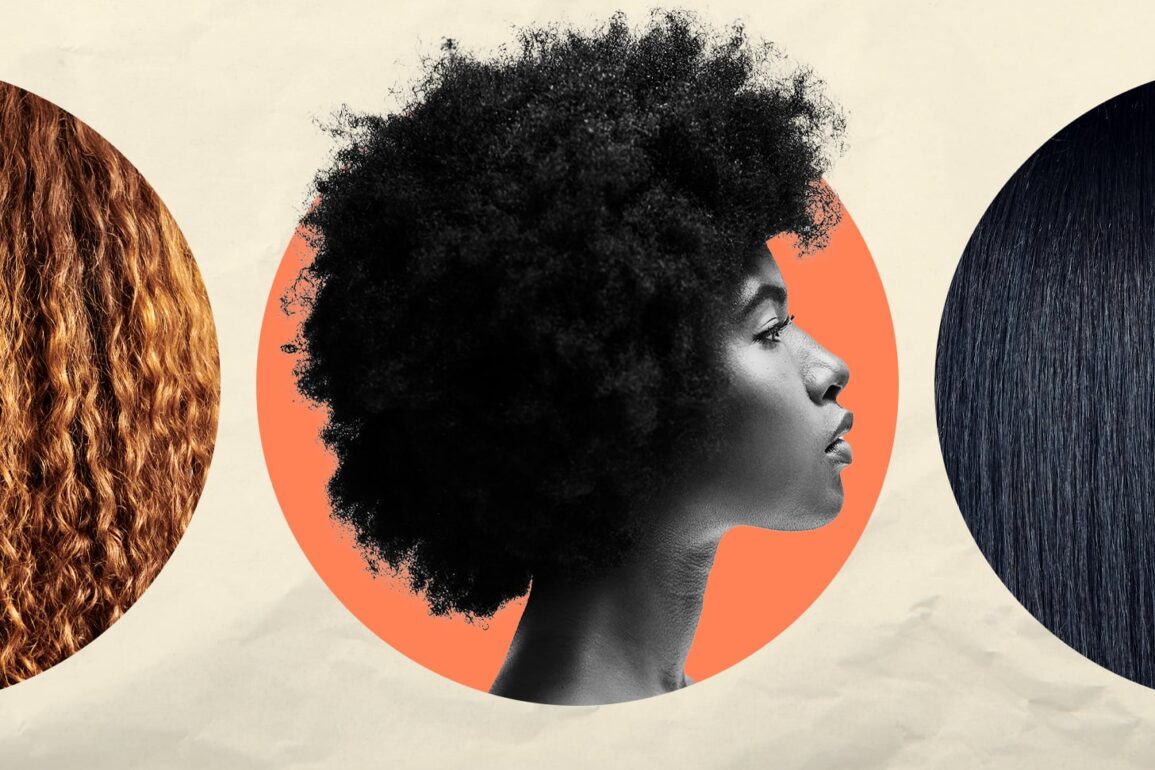
Have a look around and you’ll find Reddit threads, emotional articles and community forums filled with the stories of Black women sharing a range of emotions; from frustration, to tolerance and to love for their natural hair.
A turbulent relationship with natural hair seems to be a universally Black experience. I shared the details of my hair journey back in 2020, describing how it was the first time, and probably the only time (due to the UK lockdown) I had nothing to style my hair for, or to look “presentable” for. That period taught me that while I love a protective style, I care a lot more about my hair underneath and ultimately, I now embrace my ability to experience the best of both worlds — having the confidence to wear a protective style and love my natural hair.
My feelings from lockdown haven’t changed, but I’m able to admit that there was, and always has been, a hyperfixation on natural hair. After years of Afro-textured hair being seen as “less than”, the pendulum has swung the other way and now, there’s an increased focus on what Black women do with their hair. There are certain ways you should and shouldn’t wear your hair, often depending on how “palatable” your style or curls are. Pushing back on this pressure to wear your hair how others see fit results in your love for your hair, and even your identity, being questioned.
As someone who changes their hairstyle often, I always felt I could never be left alone in my decision to wear it out, to wear a wig, to wear braids, or whatever it may be. There always had to be more to it. People would ask if I was in-between styles. Or hiding my hair because I hated it, or wearing it out because I loved it. It was the only downside to changing my hair, I knew I’d be gawped at or have assumptions thrown at me, usually due to innocent curiosity — which grew tiring after a while — or from people armed with unsolicited hair advice. My hair and I could never just be.

Image Source: Lauren Gordon/Popsugar Photography
Black women are subject to this constant scrutiny too, from both ends of the spectrum, as if doing what you want to do with your hair is a crime. On TikTok, @EssentialMel shared the story of a Black woman who told TikTok she was complimented on her unstyled natural hair by her white co-workers and how viewers in the comments branded the compliments as lies because they didn’t believe her hair looked good at all. Elsewhere, @YouLuvShann jumped to the defence of Black women receiving hate for choosing to wear their hair straight, telling her followers: “Just because you like to wear your hair straight, doesn’t mean you’re anti-Black or hate your curls. It’s all about convenience and what works for you.”
These wild projections of self-hate and shame placed onto Black women, often from people policing what others should and shouldn’t be doing with their hair, are nothing new.
Jasmine Pierre, a close friend of mine, who recently started wearing her Afro-textured hair in its natural state, admits to PS UK that she felt pressured to not only hide her hair, but to hate it too. “As a pre-teen Black girl, I felt like I was only allowed to say I love my natural hair if it was long, thick and loosely curly, but my hair doesn’t tick those boxes.
“My hair type must be the most hated in the world, both by people who have it and people who don’t.”
“My hair type must be the most hated in the world, both by people who have it and people who don’t. The hate is so normalised that people think you’re either in between styles — and will question when you’re getting your hair done next — or think that you’ve done a big chop as a result of some tragedy,” she adds.
Alicia Lartey, an aesthetician and product developer is a straight natural and shares that whenever she posts hair content, someone always has something “crazy” to say. She tells PS UK: “I used to get unsolicited advice from people who’d accuse me of being self-hating. It’s insane because I’ve had my hair curly all my life and I switch between different styles, right now it’s straight.”
Lartey adds: “There’s also a pressure from my industry to wear my hair straight, people treat me a lot better. The respect from other influencers tends to be better when my hair is straight versus when my hair is curly and I feel like I’ve been put into this box of being ‘highly politicised’.”
There’s a shared negative mindset around our natural hair and how it looks that many of us, including me, are still working to unlearn. For a long time, I never felt like my hair, unstyled and in its natural state, was ever “presentable” enough. Take my faux messy bun phase for example. Ahead of a morning meeting, I’d use a gel to slick my hair back, and the ‘messy’ aspect was achieved by two strands I’d forcibly pulled out of a perfectly formed bun and made into a ringlet using a defining cream. Nothing about it was effortless but I felt it was necessary.
“For a long time, I never felt like my hair, in its natural state, was ever ‘presentable’ enough.”
Until one day, while working from home during the lockdown, I washed my hair but didn’t have time to style it before a meeting. I threw my hair into a “real” messy bun, the shorter strands around my hairline were sticking up and out, my strands loosely pulled together with a scrunchie. I looked a mess, but no one noticed, and no one cared. The next day, I logged on with shoulder length braids and again, no one said a thing.
This might sound odd, but there was nothing more freeing than having zero comments about my hair, like I’d finally escaped from being under a microscope. This showed me that what’s convenient for me and what I like to do with my hair is all that matters and I’ve followed this knowledge ever since.
In the same way, Pierre threw herself into the deep end and the relationship with her hair changed for the better. “At first, I didn’t know what to do with my hair when it was out and didn’t have the patience for it either,” she says. “The constant wash days, night time moisturising routines and morning detangling were exhausting. Eventually, I ended up with bags of Xpression braiding hair piled up in my room, readily available for back-to-back braid styles.
@jasminedestinyx
♬ The Cure & The Cause (Sped Up House Version) – Fish Go Deep & Tracey K
“But things changed, I realised that I am beautiful as I am,” Pierre says. “I finally got out and about with my hair in its natural state and I’ve found that prioritising what works for me has been life changing. My approval is the only approval I seek these days, so if I’m happier with my hair out or braided or loc’d up or chopped off then I’m going to do whatever I want.”
Similarly, Lartey is pursuing the fun in her experimental relationship with her hair. She says: “I love colouring my hair and I experience a bit of damage, but I’ve taken the ‘it’s just hair’ approach. It’ll grow back. I can chop it, dye it, go bald and do it all over again. Or I’ll wear a wig. I’d rather have fun and do things that suit me rather than being stuck in a box. Hair health without fun doesn’t work for me. And despite the bad things people may say about my hair, I don’t care, I want to exist as myself at the end of the day.”
Lauren Gordon is the editorial coordinator at PS UK, where she creates lifestyle and identity content. Lauren has a degree in journalism from University of the Arts London and previously worked as a showbiz and TV reporter at The Mirror US. Lauren specialises in pop culture, hair and beauty, focusing on trends, sharing in-depth tutorials, and highlighting hidden gems in the beauty industry.
Image Source: Getty / Delmaine Donson PeopleImages and Photo Illustration by Aly Lim
This post was originally published on this site be sure to check out more of their content.

















